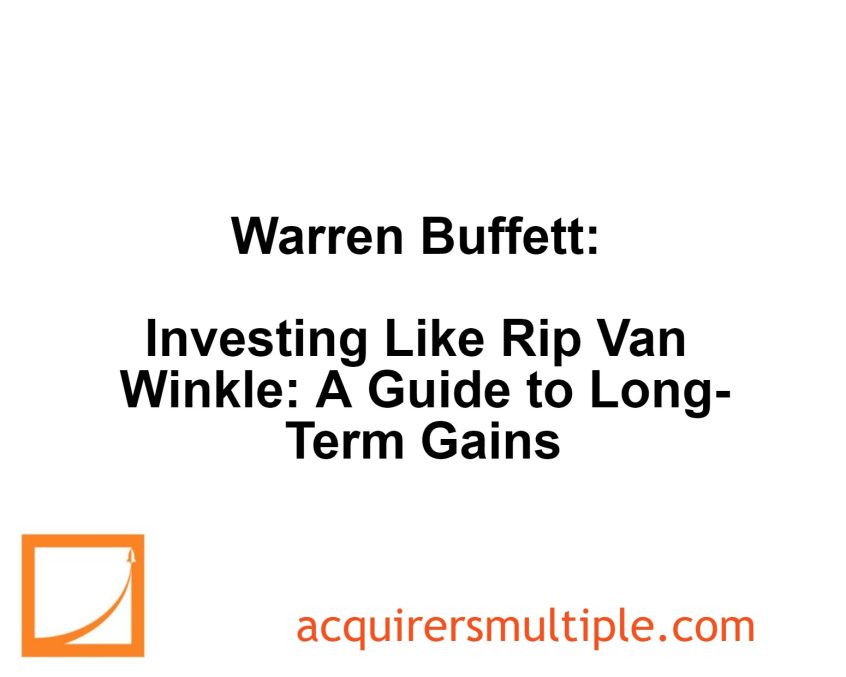In his 1989 Berkshire Hathaway Annual Letter, Warren Buffett explains that long-term investing, like his Rip Van Winkle approach, has a significant advantage due to tax timing. By comparing two scenarios, he shows that reinvesting after annual taxes over 20 years yields about $25,250, while a single long-term investment grows to $1,048,576, leaving $692,000 after taxes.
Despite this, Buffett and his partner Charlie prefer long-term investments for the quality of business relationships and consistent, though not optimal, financial results. They value the enjoyment and rarity of these relationships over the potentially higher returns of frequent trading, likening it to not marrying solely for money.
Here’s an excerpt from the letter:
Because of the way the tax law works, the Rip Van Winkle style of investing that we favor—if successful—has an important mathematical edge over a more frenzied approach. Let’s look at an extreme comparison.
Imagine that Berkshire had only $1, which we put in a security that doubled by yearend and was then sold. Imagine further that we used the after-tax proceeds to repeat this process in each of the next 19 years, scoring a double each time. At the end of the 20 years, the 34% capital gains tax that we would have paid on the profits from each sale would have delivered about $13,000 to the government and we would be left with about $25,250.
Not bad. If, however, we made a single fantastic investment that itself doubled 20 times during the 20 years, our dollar would grow to $1,048,576. Were we then to cash out, we would pay a 34% tax of roughly $356,500 and be left with about $692,000.
The sole reason for this staggering difference in results would be the timing of tax payments. Interestingly, the government would gain from Scenario 2 in exactly the same 27:1 ratio as we—taking in taxes of $356,500 vs. $13,000—though, admittedly, it would have to wait for its money.
We have not, we should stress, adopted our strategy favoring long-term investment commitments because of these mathematics. Indeed, it is possible we could earn greater after-tax returns by moving rather frequently from one investment to another. Many years ago, that’s exactly what Charlie and I did.
Now we would rather stay put, even if that means slightly lower returns. Our reason is simple: We have found splendid business relationships to be so rare and so enjoyable that we want to retain all we develop. This decision is particularly easy for us because we feel that these relationships will produce good—though perhaps not optimal—financial results.
Considering that, we think it makes little sense for us to give up time with people we know to be interesting and admirable for time with others we do not know and who are likely to have human qualities far closer to average. That would be akin to marrying for money—a mistake under most circumstances, insanity if one is already rich.
You can find the letter here:
For all the latest news and podcasts, join our free newsletter here.
Don’t forget to check out our FREE Large Cap 1000 – Stock Screener, here at The Acquirer’s Multiple:



